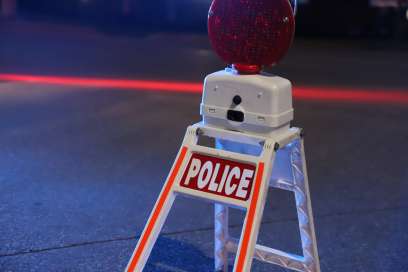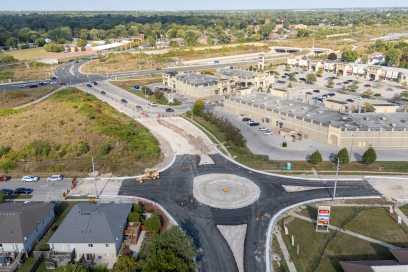Essex-Windsor EMS Launches Defibrillator Awareness And Mapping Campaign
Saturday April 20th, 2024, 8:28am
Hello time traveller!!
This article is 513 days old.
The information listed below is likely outdated and has been preserved for archival purposes.
Essex-Windsor EMS is encouraging area business owners to install Automatic External Defibrillators and train staff in their use. It is also calling on the residents of Windsor and Essex County to help map the public locations of these life-saving devices.
“Minutes matter when it comes to instances of cardiac arrest, and the more Automatic External Defibrillators we have in Windsor-Essex, and the more people we have trained in their use, the better,” said Essex-Windsor EMS Chief Justin Lammers. “Help us help you! If you’re a business owner, work with EMS to install an AED and train your staff. If you’re a resident, help us map these life-saving devices so bystanders can access them quickly when an emergency arises.”
An AED is a sophisticated yet easy-to-use electronic device that can be used to restart a person’s heart if it has stopped beating. Survival rates following instances of sudden cardiac arrest improve dramatically if a shock from a defibrillator is received within three minutes of collapse and decrease every minute after that. AEDs in public locations are called Public Access Defibrillators, or PADs.
While the majority of cardiac arrests to which our Paramedics respond occur in private residences, emergencies frequently strike in public areas. Bystander CPR was conducted on 161 occasions in 2023, but a PAD was only used in 11 of those cases.
Essex-Windsor EMS is encouraging residents of Windsor and Essex County to download a smartphone app called PulsePoint and use it to map and register all the defibrillators across the region. Mapping and maintaining PADs will be a requirement when Ontario’s Bill 141 takes full force and effect.
Officials say that there are about 560 defibrillators locally that have been registered, but a great many more aren’t registered. It’s vital they are all registered and mapped so that dispatchers can alert 911 callers to the closest PAD to their location.
“Defibrillators are easy to use, and each and every one of us can be a lifesaver if we can quickly access a defibrillator when someone suffers an instance of sudden cardiac arrest,” said Warden Hilda MacDonald. “All of us have the ability to save a life. The key is ensuring all our public access defibrillators are mapped and registered and we are calling on the residents of Windsor-Essex to help us achieve this life-saving goal.”
Members of the public who download the free app can easily upload the location of PADs from their mobile devices. The uploads are then authenticated by PulsePoint and shared with the Windsor Central Ambulance Communications Centre so their location can be quickly conveyed in the event of an emergency.
























